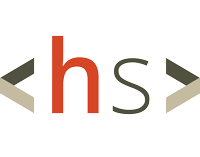Trending Topics

Cloudflare Global Network Outage Disrupts Major Online Services
Cloudflare confirmed a significant disruption across its Global Network on November 18, 2025, with outages rippling through major platforms, including X, Canva, Downdetector, and various web services relying on Cloudflare infrastructure. The issue surfaced shortly after the company completed scheduled maintenance, triggering widespread HTTP 500 errors that affected both customer-facing sites and Cloudflare’s own dashboard and API. During early remediation attempts, Cloudflare disabled WARP access in London, causing connection failures for users dependent on that encrypted-traffic service. Throughout the incident, the company issued repeated status updates noting that it was still investigating the root cause, which contributed to ongoing instability even as some regions began to recover. The timing drew attention because Cloudflare had recently mitigated several record-setting DDoS attacks, prompting speculation that this outage might be linked to another high-volume attempt to overwhelm its infrastructure. Reports from monitoring platforms showed outage spikes exceeding 10,000 user reports, underscoring the breadth of the disruption as services struggled to reestablish stable connections. Websites that rely on Cloudflare for content delivery, security filtering, or DNS resolution experienced intermittent downtime or complete failure to load, with some communities — including 3D printing platforms and design tool users — reporting total service outages. Cloudflare later stated that it had identified the underlying issue and was rolling out a fix, though it warned of continued turbulence while changes propagated across its global footprint. The outage demonstrated how a single point of failure in a large network provider can trigger cascading service interruptions across unrelated sectors, highlighting the operational dependencies built into the modern internet. For leadership audiences, the event underscores the need for diversified infrastructure planning, broader redundancy strategies, and continued testing of failover pathways to reduce the operational impact of large-scale upstream outages.
Logitech Confirms Major Data Theft Tied to Zero-Day Exploit
Logitech confirmed a significant security breach involving the theft of roughly 1.8 terabytes of internal data after attackers exploited an undiscovered flaw in a third-party software platform. The company filed a regulatory disclosure (Form 8-K) on 17 November 2025, confirming a cybersecurity incident involving the exploitation of a zero-day vulnerability in a third-party software platform. The company stated that its products, production lines, and broader business operations were not disrupted, but that internal systems were accessed long enough for intruders to extract large volumes of information. Early findings indicate the stolen material contained limited data connected to employees, consumers, customers, and suppliers, although the firm asserts that highly sensitive identifiers and payment information were not stored in the affected environment. The timeline and technical indicators match a recent wave of attacks carried out by the Clop extortion group, which has been targeting organizations that rely on Oracle’s E-Business Suite. While Logitech did not name the group in its regulatory filing, the volume of data claimed by Clop and the nature of the exploit strongly align with tactics observed in these campaigns. Security researchers report that this breach was part of a coordinated series of intrusions where attackers used a zero-day flaw to pivot from a compromised third-party platform into enterprise environments connected to Oracle systems. Once inside, the threat actors quietly collected data before issuing ransom notices to impacted organizations. Logitech responded by engaging external cybersecurity teams, reviewing the attacker’s access path, and deploying patches immediately after the vulnerability was confirmed. The company’s assessment indicates that the intruders did not access systems that store national identifiers, payment records, or other high-risk data categories, thereby reducing overall exposure despite the volume of files taken. This incident highlights the operational risk posed by third-party platforms, the pressure created by rapid exploitation of unknown flaws, and the need for constant scrutiny of external dependencies. Organizations should strengthen oversight of vendor platforms, expand continuous monitoring across integrated systems, and review incident response procedures to ensure faster containment during future supply-chain-driven attacks.
Eurofiber France Confirms Breach of Ticketing System Following Targeted Exploit
Eurofiber France disclosed a security incident after identifying that attackers had exploited a vulnerability in its ticket management system late last week, enabling unauthorized access and data exfiltration. The affected systems are part of the French division of the Eurofiber Group, which manages digital infrastructure services for businesses across several European countries. The company emphasized that critical assets, banking information, and sensitive operational systems were not impacted, though it has not yet detailed the exact categories of data stolen. Immediate containment steps included securing the ticketing platform, reinforcing protections around the ATE cloud portal, and patching the root vulnerability within the first hours of detection. Eurofiber France added that most indirect sales and wholesale partners were minimally affected, as they relied on separate platforms, thereby reducing the scope of operational disruption. Shortly after the disclosure, a threat actor known as “ByteToBreach” claimed responsibility on a leak forum, alleging the theft of data from roughly 10,000 business and government customers. The actor claims to possess files uploaded to the ticketing system, including screenshots, VPN configurations, credentials, certificates, source code, email account files, SQL backups, and compressed archives. Eurofiber France has reported the incident to CNIL and ANSSI, and it filed an extortion report, confirming that a payment demand was issued to prevent public release of the stolen data. The company continues to assess the breadth of exposure and plans to notify affected customers once verification is complete. This event underscores the growing risks tied to support-system vulnerabilities and highlights the need for stronger separation between customer-upload repositories and core operational assets. Leadership teams should reinforce vendor-platform monitoring, conduct more frequent security reviews of auxiliary systems, and ensure rapid patching cycles for externally accessible service portals.





